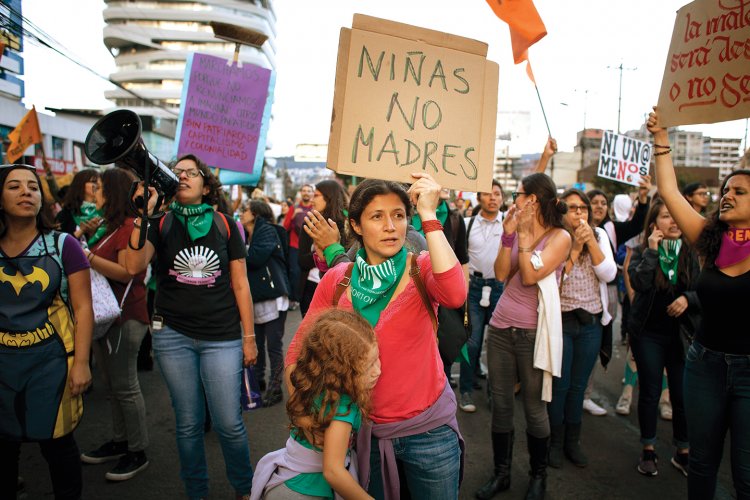Women’s Movement Provokes Latin America to Loosen Abortion Restrictions

Mexico: Several weeks pregnant and about to start a job away from home, Lupita Ruiz had no doubts about wanting to end her pregnancy, despite knowing she could face jail time for having an abortion under a law in her state of Chiapas in southern Mexico.
She asked friends for help until she found a doctor two hours from her town who agreed to do it in secret.
Five years later, lawmakers in Chiapas are set to consider an initiative to halt prosecutions of women who terminate their pregnancies, part of a movement sweeping Latin America to loosen some of the world’s most restrictive abortion laws.
Several out of more than 20 Latin American nations ban abortion outright, including El Salvador, which has sentenced some women to up to 40 years in prison. Most countries, including Brazil, the region’s most populous, allow abortion only in specific circumstances, such as rape or health risk to the mother.
Just Uruguay and Cuba allow elective abortions.
In Mexico, a patchwork of state restrictions apply, but the debate is shifting, Ruiz said.
“When someone talked about abortion, they were shushed,” said the 27-year-old activist, who helped draft the Chiapas initiative. “Now I can sit down to eat a tamale and have a coffee and talk with my mom and my grandma about abortion, without anyone telling me to be quiet.”
Change is palpable across the predominantly Roman Catholic region. A new Argentine president proposed legalization last month, Chilean activists are aiming to write broader reproductive rights into a new constitution, and female lawmakers in Mexico are resisting abortion bans.
The push can be traced to Argentina’s pro-abortion protests in 2018 by as many as one million women to back a legalization bill that only narrowly failed to pass in Pope Francis’s home country.
Catalina Martinez, director for Latin America and the Caribbean at the Centre for Reproductive Rights, a legal advocacy organization, said Argentina’s example inspired protests across Latin America.
“It was an awakening,” she said.
Outrage at worsening gender violence in Latin America, where the number of femicides has doubled in five years, has also spread awareness of the abortion rights movement and fuelled demands for recognition of women’s rights in a conservative, male-dominated society.
“Women are finally understanding that they are not separate issues,” said Catalina Calderon, director for campaigns and advocacy programs at the Women’s Equality Centre. “It’s the fact that you agree that we women are in control of our bodies, our decisions, our lives.”
The rise of social media has afforded women opportunities to bypass establishment-controlled media and bring attention to their stories, Calderon said.
“Now they’re out there for the public to discuss and for the women to react, and say: ‘This does not work. We need to do something’,” Calderon said.
As in the United States, where conservatives have made gains in restricting a woman’s right to an abortion, there is pushback in Latin America against the calls for greater liberalization.















































